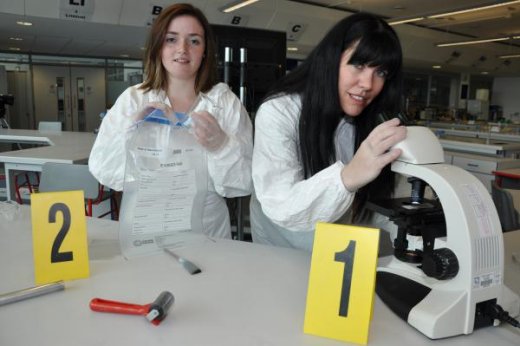
Forensic psychology is one of the most popular specializations in the greater field of psychology at the moment. It combines the fields of law, criminal justice, and psychology. Forensic psychology program graduates could go on to have a career within a law firm, a law enforcement department, or in a college. They must be skilled with assessing behavioral problems and diagnosing mental illness, while also providing counseling to criminals and juvenile offenders in many cases.
The following are 10 of the top options for graduates with a degree in this field.
#1 Adolescent Counselor
Professional forensic psychologists who want to make a difference in a young person's life may work with juveniles who have run afoul of the law. Adolescent counselors can help diagnose any potential mental health problems, while making referrals for other social services when necessary.
#2 Family Counselor
Forensic psychologists coming from a clinical or counseling background can work with families in need of therapy. This could include meeting with the family members of individuals in prison, or reaching out to those with addictions. They often work within the domestic and family courts, helping provide counseling for those who have suffered from domestic violence.
#3 Expert Witness
During criminal trials, forensic psychologists may be called to the stand to offer professional witness testimony. They will testify regarding the defendant's mental state, or whether the individual is mentally competent enough to stand trial. Psychologists might be employed on a full-time basis by large law firms for this role, or they may offer their services on a consultant basis.
#4 Child Custody Worker
Forensic psychologists are commonly involved with child custody cases, if the lawyers need to assess whether one or both parents is psychologically capable of taking care of their children.
#5 Probation Officer
Psychology and therapy is an important part of the rehabilitation process for juvenile offenders and adults, and due to this fact many probation officers have a background in forensic psychology. In this job, a forensic psychologist would help provide counseling to help the offender reenter society smoothly.
#6 Correctional Officer
It's also common for police officers or correctional officers to have a background in forensic psychology, because it is helpful in managing hostage situations, supervising large groups of inmates, and helping divert crises within a correctional facility. Forensic psychology graduates may be able to help inmates improve their quality of life behind bars in this role.
Source: mastersinpsychologyguide.com
You might also like:



|
Banishing Burnout: Six Strategies for Improving Your Relationship with Work Book (Jossey-Bass)
|















There are really is no wage ranges for an associates in psychology. If you have a specific career in mind, then you can find out the estimated wage ranges particular to that career. Click on the related links section (U.S. Department of Labor) indicated directly below this answer box where you will be able to obtain information on wages.
An Associate's degree in Psychology allows you to work in social agencies, correctional facilities, and other organizations.
All different kinds. There are lots of different people and so therefore lots of different jobs. For example you could become a therapist or a criminal profiler or criminal psychologist as some people call them or a child psychiatrist or adult or just a plan professor of psychology :)